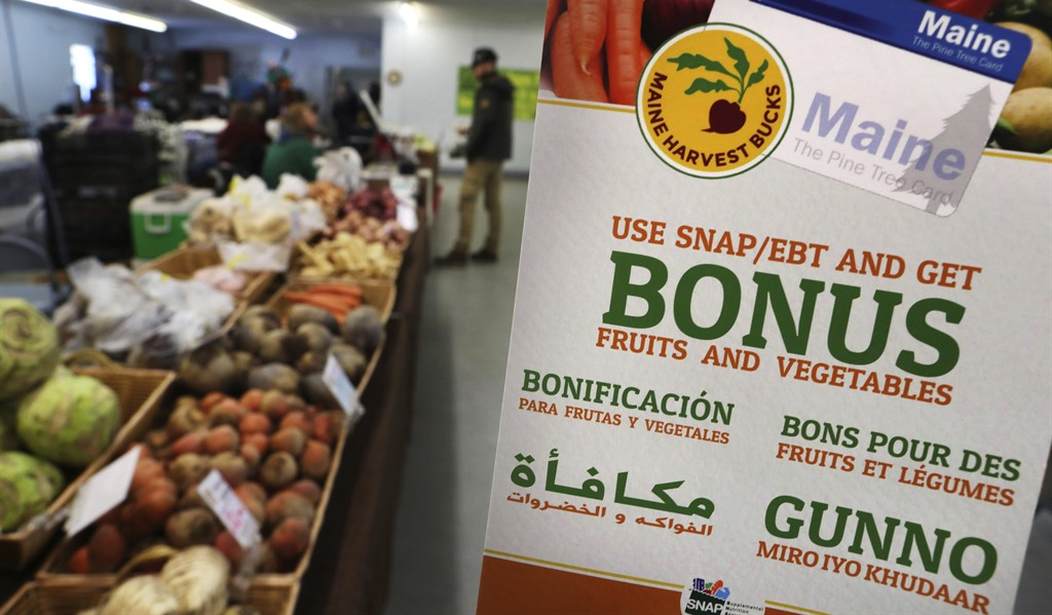US Sens. Ron Wyden and Jeffrey Merkley have asked US Department of Agriculture Secretary Brooke Rollins to help stop criminals from stealing from the Supplemental Nutrition Assistance Program.
SNAP feeds about 42 million people through the Supplemental Nutrition Assistance Program.
Criminals steal funds by installing fake card readers in public places, phishing scams, and more. Once someone else swipes their card in the fake card reader, the criminals can copy the card information and sell it on the dark web.
At least 60 Oregon residents have had benefits stolen from them, the letter dated Sept 19 said.
“To prevent instances like this from recurring, and to earnestly cut down on the organized theft of federal dollars for criminal purposes, the USDA must act with urgency to require state-issued benefit cards to be protected by industry-standard payment security defenses to protect users against card skimming, card cloning, and other similar fraudulent means. Such defenses have already been widely adopted by both the private sector and throughout the Executive Branch.”
A federal dashboard tracking SNAP fraud shows that Oregon has approved over 5,770 claims of stolen benefits counting 2023, 2024, and part of 2025. The state health department has replaced $2.2 million in benefits.
Wyden Merkley Letter to Usda on Malheur Snap Skimmingpdf by scott.mcclallen
Criminals have targeted SNAP benefits in every state, according to the dashboard. Across 53 states, the federal government said that states approved over 691,000 stolen benefits claims with a total value of $322 million.
Recommended
Last year, Wyden introduced the Enhanced Cybersecurity for SNAP Act to reduce SNAP fraud by upgrading the federal government’s cybersecurity.
The bipartisan bill was supported by U.S. Sens Ron Wyden, D-Ore., John Fetterman, D-Penn., and Bill Cassidy, R-La.,
The letter asks USDA to remove the requirement that SNAP cards include outdated and insecure magnetic stripes, require the inclusion of EMV chips, and within the next couple years – force states to stop issuing cards with magnetic stripes.
USDA to issue updated regulations requiring SNAP cards to feature anti-fraud technology capable of resisting cloning. These regulations, which also cover mobile payments (such as tap-to-pay with a smartphone), will be updated every five years and must keep pace with private sector and federal agency payment security safeguards.
With USDA funding, states will begin issuing chip-enabled SNAP cards within two years of the adoption of the new regulations. Within four years, states will no longer be able to issue new SNAP cards containing a magnetic stripe. Within five years, states will have to reissue all existing SNAP cards containing a magnetic stripe as chip-only cards.
USDA to operate a grant program providing funds for upgraded chip-capable payment machines to small grocery stores in food deserts, farmers markets, and farm-to-consumer programs.
States to provide families with no-fee replacements of SNAP cards in three days or less, if their card is stolen, cloned by fraudsters, or malfunctioning.
States to offer multiple accessible, reliable, and mobile-friendly user interfaces, such as a smartphone app or online web portal, for families to manage their EBT account.
The USDA hasn’t responded to a request for comment.
Over the past few years, five states have either switched to chipped SNAP cards or are doing so — Alabama, California, Maryland, New Jersey, and Oklahoma, according to the U.S. Department of Agriculture.
The states that reported the most SNAP fraud are:
- New York: 151,738
- California: 85,978
- Texas: 57,187
- Illinois: 41,565
Editor’s Note: Do you enjoy Townhall’s conservative reporting that takes on the radical left and woke media? Support our work so that we can continue to bring you the truth.
Join Townhall VIP and use the promo code FIGHT to get 60% off your VIP membership!

























Join the conversation as a VIP Member